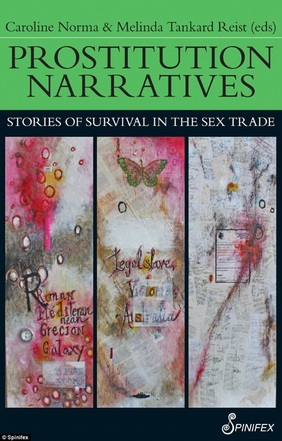
Prostitution Narratives: Stories of Survival in the Sex Trade, edited by Caroline Norma and Melinda Tankard Reist, contains nineteen testimonies by women from around the world who have survived the sex trade, with three commentaries, a prologue by Rachel Moran, and an introduction by the editors. These are the voices of women who have been trafficked, used in pornography, worked in legal brothels, worked on the street. Some of them were addicted, some were sexually abused as children. All of them survived.
Reading this book, the question that kept coming up for me was, “How can anyone believe that prostitution is a legitimate job?” I believe the answer lies in the fact that most people will believe what they are incentivized to believe. Long-time abolitionist Melissa Farley is cited in the introduction:
“There is an economic motive to hiding the violence in prostitution and trafficking… prostitution is sexual violence that results in massive economic profit for some of its perpetrators… Many governments protect commercial sex business because of monstrous profits.”
But what about the average person on the street… the average liberal, perhaps? I am reminded of what Hitler wrote about the “Big Lie:”
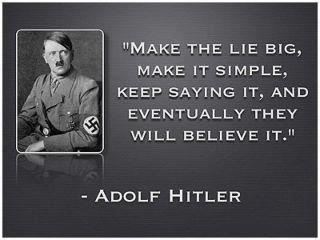
It is this belief in the Big Lie that enables governments and organizations like Amnesty International to overlook the truth about prostitution, and it is actions like the writing in Prostitution Narratives that will render that Big Lie unsustainable.
Rachel Moran, who wrote the Prologue, speaks about the lying at Ground Zero… in the victim’s own consciousness. (A footnote on Moran: She is the author of the astounding memoir Paid For: My Journey Through Prositution. Her memoir performs the near-miraculous feat of describing in detail the emotional state and psychological syndromes and strategies associated with the violations of prostitution. Her courage in writing that memoir reminds me of Harriet Tubman, who didn’t just get herself out of captivity, but who retraced her steps back to hell, over and over again, in order to bring out others.) So here is Moran:
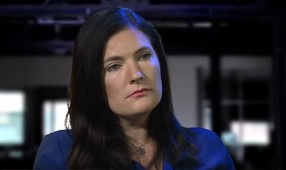 Rachel Moran, survivor and author
Rachel Moran, survivor and author “The carnage of their own complicity.” And, the carnage of all our complicity.
The only way I know how to do this book justice in a blog is to give the space over to some of the voices in these pages, starting with the writing of Jacqueline Gwynne, a woman who was a receptionist at an upscale brothel in Melbourne. (In Australia, prostitution is legal.)
“My job title was ‘receptionist.’ I had a brothel manager’s license. But in reality I was actually a pimp. I had to sell women…
When I started, I was pro-porn and pro-sex work. At first I thought it was cool and exciting. I had read many books and watched films about the sex industry. It is glamourised in the media. But, in reality, the men are mostly fat, ugly, mad, old, creepy, have poor social skills, very few sexual skills and appalling personal hygiene. They generally can’t have normal relationships with women because of these reasons and they also have no respect for women. Any man that walks in to a brothel has no respect for women…"
 Glamorizing image of "Australia's largest brothel"
Glamorizing image of "Australia's largest brothel" The men would request exactly what they had seen in porn and wanted the girls very young and blonde. They would request extra for no condom: that would happen every night. I have no idea if any girls did, there were rumours of it happening. When you haven’t had a job all night, can’t pay your rent, it’s 4am and some guy offers you $500, what do you do?...
Being paid for sex is not what I think of as consensual sex. If you met these guys elsewhere you would not want to have sex with them. Prostitution is virtually paid rape…”
Rhiannon in “Didn’t Come to Hear Bitches Recite Poetry,” elaborates on that theme:
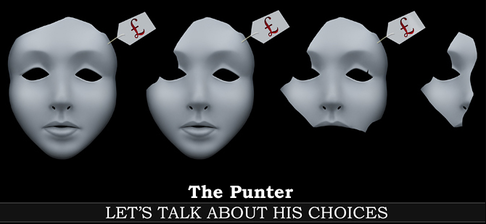
“He told me he had $200 and I followed him to his apartment. In the world I lived in, the sum of all I was worth was $200. That fact filled me with more pain than I could contain. In his bathroom I took the rest of the pills left in my bag, found his razor and used it to cut my wrists, then removed my clothes and went and lay down on his bed with blood sticking to the toilet paper I had stuck on the cuts. He only had a hundred dollars, he said. It was all he could find. I insisted on clutching the cash while he used me. This man felt it was worth paying a hundred dollars to have sex with a woman who had a tear-stained face and bleeding wrists."
Was that kind of callous or sadistic indifference an exception?
Caitlin Roper cites from a study done by Melissa Farley and colleagues, “Comparing Sex Buyers with Men Who Don’t Buy Sex:”
“Two thirds of both the sex buyers and the non-sex buyers observed that a majority of women are lured, tricked, or trafficked into prostitution” and that “41%... of the sex buyers used women who they knew were controlled by pimps at the time they used her… The knowledge that women have been exploited, coerced, pimped or trafficked failed to deter sex buyers from buying sex.”
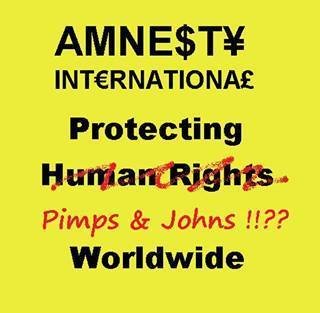 A protest against Amnesty's recently adopted pro-prostitution policy
A protest against Amnesty's recently adopted pro-prostitution policy “A lot of them [johns] seem hypnotized, like they don’t know that the whole thing isn’t real. A lot of them say, ‘I love you’; a lot seem normal, but not many realize that you are there because you were initially desperate and then you just got lost in the money or drugs or whatever. It’s inconvenient for them to think about our circumstances.”
So why aren’t more survivors speaking out?
Here’s Tanja Rahm:
“A lot of women around the world have been trying to tell the truth about prostitution and what is going on in prostitution. But when you speak out, you take a high risk. You run the risk of being threatened, hated, being told that you are weak, weren’t strong enough, that prostitution isn’t for everyone, that you chose it for yourself, that you got a lot of money from prostitution and are therefore a whore. What the pro-prostitution lobby tries to do is frighten women into not telling the truth about their experiences, so that you won’t be able to hear the truth. The fact you don’t hear from [survivors of prostitution] very often is not because they are not there. It is because they are not ready to confront society’s neglect of their experiences.”
But some of these women do speak out… and here is Simone Watson’s experience:
 Trafficking survivors speaking out at the UN
Trafficking survivors speaking out at the UN Finally, I want to end with the writing of Christine Stark, a friend and fellow author. I reviewed her book Nickels: A Tale of Dissociation a few years ago. In her essay, “When You Become Pornography,” she tells of her experience:
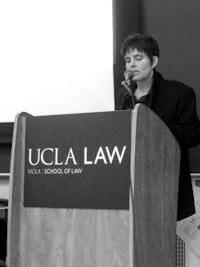 Christine Stark speaking out.
Christine Stark speaking out. When you become pornography and your heart does not stop and oxygen continues to cascade through your bloodstream there is no mercy. There is no transformation into a delicate, shimmering spirit bird. There is only forgetting and moving on, as dead as you are, as best you can. Or there can be remembering. But if you remember, go back to the horror, there are raw loops of pain, photos of welts, of debasement so extreme many will no believe and most will not care. If you look to others you might not make it, but if you look to yourself, that girl you were, ripped anus, semen coated mouth, the one pinned to the stinking floor by pain and exhaustion and despair, and you strike a deal with her, no one will or can do this for you, and no matter how terrible the day or how splendid, you are alive and that is a gift, to be grateful for, though you may not be able to feel it or know it.”
Order here.

 RSS Feed
RSS Feed
